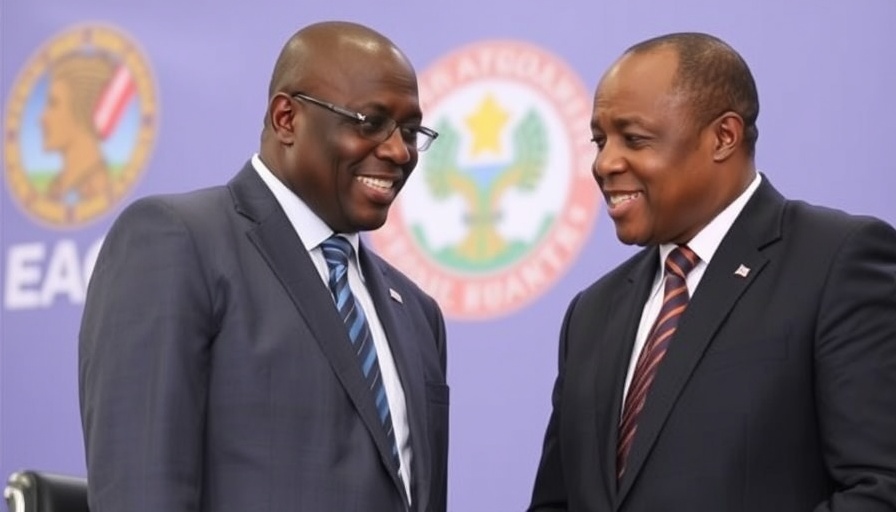
Financial Imperatives Shaping the EAC's Future
The East African Community (EAC) finds itself at a critical juncture, grappling with a staggering budget shortfall of $58 million that threatens to stifle its operations. Recent meetings of the Council of Ministers in Arusha have highlighted budgetary concerns as paramount, leaving many to wonder about the implications of these financial constraints on regional cooperation, development, and governance.
Chronic Payment Deficits: A Call to Action
Despite the urgent need for funding, many member states have failed to fulfill their financial obligations to the EAC. t is alarming that as of March 2025, only Kenya and Tanzania have remitted their due contributions in full, with Uganda falling marginally short. This chronic default has stalled vital projects and hindered the hiring of a necessary 150 staff, further disrupting operations within the organization.
Impacts on Judicial Operations: A Backlog in Justice
The financial strain is most acutely felt within judicial bodies, such as the East African Court of Justice (EACJ), which is currently managing a backlog of over 260 cases, owing primarily to the inadequate number of judges available. With judges servicing on an adhoc basis, the EACJ’s capacity to handle cases is severely impaired, sparking concerns about justice access in a region that is increasingly reliant on its legal frameworks.
Staffing Crisis: A Growing Dilemma
The EAC still has 150 unfilled staffing vacancies that jeopardize its operational efficiency. This situation compounds existing financial woes, leading to operational slowdowns that could undermine the EAC’s role in influencing regional stability. Without sufficient personnel, the secretariat may be forced to forego critical projects aimed at economic integration and diplomatic relations, potentially jeopardizing Africa's broader socio-economic landscape.
Geopolitical Implications of Economic Shortfalls
As the EAC faces this crisis, the implications extend beyond mere budgetary concerns. Weak financial support raises suspicions among international observers and stakeholders about the viability of Africa’s regional organizations in fostering cooperation and stability, key components needed for foreign investments and trade agreements. For policymakers, understanding the EAC's financial dynamics is imperative for shaping effective diplomatic strategies and ensuring robust governance across member states.
As business leaders, investors, and policymakers grapple with these issues, it becomes evident that addressing the EAC’s budgetary woes is not merely an internal matter but a critical factor influencing Africa's position in global trade and diplomacy. Stakeholders must advocate for a comprehensive review of funding mechanisms and collaboration to foster a robust EAC that can serve as a formidable player on the world stage.
 Add Row
Add Row  Add
Add 


Write A Comment